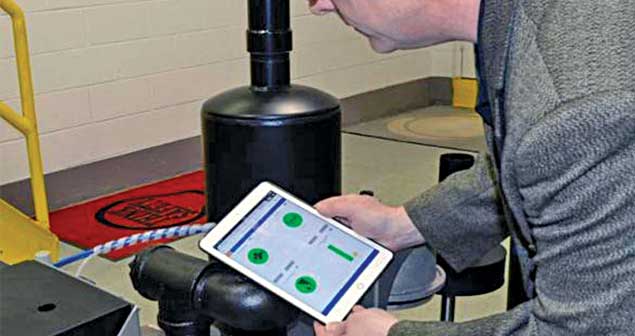- Contact Us
- +91-98111-55335
- [email protected]

A Robot For People With Spinal Disabilities
April 3, 2020
Leveraging trapped-ion technology for quantum computing
April 3, 2020Preventing Machine Failure Using Predictive Maintenance

When a major machinery breaks down because of electrical issues or component failure, you lose money every hour! This requires scalable, sustainable, and cost-effective monitoring to maximise runtime productivity and reduce expense on maintenance. Industry 4.0 is revolutionising manufacture and maintenance with the help of sensor-based technology that can help save time, prevent costly downtime, and increase profits.
MachineSense, headquartered in Baltimore (Maryland, USA) with R&D offices in Kolkata, focuses on predictive maintenance and machine analytics for infrastructure systems, industrial machinery, and components including pumps, electrical supply, and compressors. They specialise in IoT solutions for pumps and machines, electrical IoT solutions, vertical OEM solutions, and public safety solutions.
Their detection technology for vibration, temperature and electrical power is offered at a price point affordable for every industrial unit. Their platform offers 24/7 availability for online monitoring, whereas most of the current industrial instrumentation record and measure data, and anomalies, at a point in real time on temporarily attaching to the machine.
Vibration analysis assesses health of the rotational components of machines for issues in a bearing, blower, or a broken tooth in gearbox. Electrical characteristics are used to analyse electrical sub-systems to understand specific power quality anomalies within industrial and commercial power settings.
In this technology, the MEMS-based wearable sensors can be easily attached to the outside of the machine or components to automatically monitor their condition on a regular basis. The sensor data is transmitted to an easy-to-install gateway, from where it is further sent to a cloud-based server running powerful analytic software. The server transmits results to a user-friendly app, where one can view real-time machine condition to give maintenance advice when required.
The software packages installed across all industrial machinery provide a status dashboard of all connected assets such as analytics, histograms, and maintenance, repairs and operational advice. Local machine intelligence is allocated to mobile apps to provide gauge visualisations and maintenance corrective action alerts.
The Wi-Fi- and Ethernet-enabled data hub can connect with multiple sensors that enable edge computing for at-site storage and analytics. Its advanced meta-data analytics engine provides deep machine learning and statistical analysis. It never records process data, and never takes control of the machine or components, to avoid potential security threats.
The success of this monitoring and maintenance system depends on careful selection of the infrastructure tools to design and support a robust and reliable system. Along with strong analytics and trusted data sources, there are also industrial IoT (IIoT) tools for downtime reduction of sensors, edge devices, or sensor connectivity.
The scalability of the product or system becomes an issue when the number of sensors and devices exceeds, say, 250 in an IIoT system. As every device has to be brought up to the same firmware or middleware version, connectivity becomes a major challenge in that case. To mitigate these challenges, one has to update the algorithms in the device as well, using OTT (over the top) architecture.
—Deepshikha Shukla
